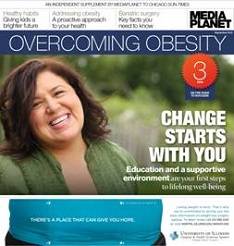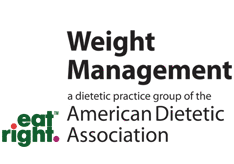Do you have a problem with eating too much at night?
By: Dr. Russ L’HommeDieu, DPTCategory: Dr. Russ LHommeDieu, DPT
As I sit here in office, I am looking at the flip chart that I use when I work with clients. Frankly, it is barely legible. It represents a frenzy of ideas and thoughts that came out during my last coaching session. While it all made perfect sense as the session unfolded, to someone that was not at the session, it looks like utter chaos.
You see, as a life coach, I am a bit unconventional. While working with me is all about getting better, it is also about having fun, laughing and being entertained. Coaching is about re-creating yourself. The way I look at it, if re-creation is at the heart of coaching – it should resemble recreation, and that is why fun is such an important part of how I do what I do. In fact, I have so much fun when I am working that many of my sessions run way longer than the agreed upon 30 minutes and nobody (not even me) seems to care.
At the top of the board is a direct quote from my client, I eat all the time. and then under that a list of times.
9am breakfast
NO SNACKING
1pm lunch
NO SNACKING
5pm dinner
7pm to 10pm non-stop eating
(which is consistent with her Facebook post of the previous evening: Why am I still eating to which I responded Step AWAY from the Buffet! and she did)
While my client felt that she was eating all the time, the schedule that she described clearly showed that her problem really was just those critical 3 hours.
I think she thought I was crazy (an already well established fact in our coaching relationship) when I started jumping around the room telling her what good news this was.
I told her that eating too much at night was a very common issue and it was much easier to deal with than if she were actually eating all the time. and believe me, I get it. I am plagued with the same demon. I tend to eat more then I would like after dinner.
Heck, now we have a target, I said AND Isnt it GOOD news that a problem you thought you had (eating continuously for about 16 hours) was actually 80% less (eating continuously for only about 3 hours).Now lets focus.
The way I see it, we can approach a problem like this from four possible directions:
- How much you eat (Quantity)
- What you eat (Quality)
- When you eat (Timing – sorry could not think of a Q word)
- Quit altogether (Yeah, kinda not an option for most of us at least not at first)
If you are not careful, you can mindlessly cram a lot of food in your stomach in three hours.
The same things that mindlessly cause us to gain weight can also help us mindlessly lose weight.- Dr. Brian, Wansank Author Mindless Eating
If you were to simply SLOW down, you would eat less food in that same 3 hours. When you are in your car and you approach a speed bump, you slow down right? Well, an eat bump is a similar helpful barrier to eating. Often, you can hold on to the habit of eating after dinner – if you just eat less food. Try these suggestions for installing eat bumps into your night eating habit:
Eat slowly (I use chop sticks) – it takes about 20 minutes for your brain to get the Im full signal from your stomach. If you are eating slowly – it gives your brain time to catch up to your stomach. PLUS, it gives you time to chew AND enjoy what you are eating. You should NEVER put food in your mouth while you are chewing food and it is down right wasteful to swallow food until you have gotten all the FLAVOR out of it. So, chew well!
Take Breaks – this also helps you eat less – make sure you are not actually eating continuously. This behavior is called grazing and it is a HUGE problem for people who have had WLS like the Lap-Band. One way to ensure that you take breaks is to portion out your food – when the portion is gone, agree to wait at least 10 or 15minutes (yes you should actually time it) before you eat again.
Step Away From the Buffet! – Try getting out of the house. Take a walk. Chances are, if you are walkin, you aint eatin! Also, being distracted with a hobby is good. Doing things that keep your hands busy are best. Sports like basketball and tennis are awesome. I like to kayak in the evening while my dad, on the other hand loves to carve and my mom is into quilting. I also have clients big into scrap booking. The key is remove yourself from food while keeping your mind and hands occupied.
Portioning is REALLY important: Put your food on a plate and dont eat from the container or bag, use a small plate, only eat out of pre-portioned bags and so on.
Make sure you sit down to eat – that way you actually have to get up in order to get more food. Who knows, you may decide that getting out of the chair for food is not worth the effort. This is one of the few times when laziness can actually HELP you lose weight.
Another issue is that these eating episodes can look pretty nasty. I can only imagine what I looked like at 410 pounds as I stood in my kitchen, in my underwear, stuffing my face with cookies and cake (ala mode). Im sure it was NOT pretty. What I decided to do was to imagine what my grandmother would think if she saw me as I was eating when I did, I started to eat in a manner that was a bit more civilized and thus I put an end to a lot of the mindless stuffing of my face.
My colleague, Dr. Kelly Allison told me that she had worked with someone who thought it might be best to allow himself to eat whatever he wanted, as much as he wanted at night. So how did that solve his night eating problem? Well, what he also decided to do was to ONLY eat this night food while staring into the mirror of the dirtiest, nastiest room in his house. (the bathroom normally used only by his teenage kids) As it turned out, that helped him lick the night eating habit for good!
Another idea would be to simply write down everything you eat after dinner. Not all day, just after dinner. Research shows that many people will simply not eat something if they know they have to write it down. Either way, when you are done writing (and eating) for the night, you will have a much better idea of the severity of your problem.
The quality of what you eat. When I talk of quality, I not only talk of nutritional quality but I also talk of the ability of a food to fill you up for very few calories. To learn more about this, see my previous post When you understand calorie density, you could eat more and lose weight!
As the discussion with my client progressed, we explored new foods like hard boiled eggs. I explained to her that 1 hard boiled egg was 78 calories while, on the other hand, the same amount of EGG WHITES only was only 17 calories. She could eat an egg white omelette with some veggies OR make egg white salad (hold the mayo) with mustard or relish or add some spice like Tabasco. Also, we talked about her making the ShroomWah Mushroom infused Quinoa? from my last blog post:
Another option would be to make the worst food in the house inconvenient (like storing the chips in the basement or garage) or by keeping junk food out of the house by not buying it.
A major key to this plan would be to PLAN! Having good choices available is an excellent way to assure that you will eat the right things. Have pre-prepared good food ready to go and keep the healthy food in convenient places while the less than healthy food is decidedly inconvenient. (remember eat bumps)
Timing.
What I have found is that there are two approaches to this facet of the problem. One is to simply decide to not eat after a certain time of night. I call this the kitchen closed strategy. Honestly, the kitchen closed strategy does not really work for me. What does work is what I call the fourth meal strategy. As I deal with MY night eating issues, (Yes, I have issues) I simply have decided it best to plan for a very modest fourth meal (dont call it a snack). I have a very specific time for this meal, I dont eat before the appointed time and if I miss my appointment, I miss the meal. – No big deal. Sometimes, I dont even need the fourth meal.
Another way to ensure success is to get in the habit of eating a very light 3rd meal (dinner) secure in the knowledge that you are going to eat a little more later in the evening.
While it is probably best to Quit eating late at night altogether, for those of us dealing with Night Eating Syndrome- that can seem a daunting goal.
I know a lot of experts will tell you that you CANT lose weight if you eat late – Im not so sure that is true. While I do agree that eating BREAKFAST is super important, I believe that, for weight loss, controlling the amount of calories you eat is more important than controlling WHEN you eat them. When I talked to Dr. Allison about my night eating issues she said – Listen, you said that you have lost the weight you want AND you have not gained any weight back. Perhaps you should relax a bit about the night eating. Keep an eye on your weight and if you begin to gain, look at your night eating patterns again. That is probably your Achilles heel but, for now, I wouldnt worry about it.
Rather than get yourself all worked up about eating late, try to remember the larger goal here – lose weight, feel great and be a better, healthier you. Perhaps simply altering your night eating will be enough – certainly it will be enough to get started. Remember we are practicing BETTERNESS. Dont try to do EVERYTHING I mentioned. Just pick one or two to try. Maybe you will think of something even better. If you do, be sure to share it with me.
Honestly, if you simply eat LESS food, with more nutrition and fewer calories – YOU WILL LOSE WEIGHT! Besides, simply altering a night eating habit is the first step to ditching it altogether.
If you eat late, you MAY be suffering from a disorder called night eating syndrome. In fact, if you find yourself actually WAKING UP to eat, there is a real good chance that you have this problem.
So what exactly is Night Eating Syndrome? According to Wikipedia: Night eating syndrome, or NES, is an emerging eating disorder diagnosis, which primarily characterizes an ongoing, persistent pattern of late-night binge eating. NES was originally described by Dr Albert Stunkard in 1955 and is currently proposed for inclusion in the next edition of the Diagnostic and Statistical Manual of Mental Disorders. The diagnosis is controversial; its validity and clinical utility have been questioned and there are currently no official diagnostic criteria. It affects between 1 and 2% of the population. Although it can affect all ages and both sexes, it is more common in young women. People with NES were shown to have higher scores for depression and low self-esteem, and it has been demonstrated that nocturnal levels of the hormones melatonin and leptin are decreased . NES is often accompanied by or confused with nocturnal sleep related eating disorder, which is primarily a sleep disorder rather than an eating disorder, in which people are unaware of having eaten while asleep. There is debate as to whether these should be viewed as separate diseases, or part of a continuum. http://en.wikipedia.org/wiki/Nighteatingsyndrome
To learn more about Night Eating Syndrome, check out the book: Overcoming Night Eating Syndrome or take this online survey from the University of Pennsylvania at http://www.med.upenn.edu/weight/nighteatingform.shtml
Doc Russ The BetternessCoach is not only a Doctor of Physical Therapy but has lost over 230 pounds and maintained it!
He has combined his weight loss experience with his life-long passion for food, nutrition, exercise and human motivation into a small step, life change program he calls Betterness®.
As the worldâs first Betterness® Coach, Doc Russ helps people achieve their goals by giving them permission to stop straining for perfection and start striving toward being better. He uses the 4 tenets of Betterness (Awareness, Accountability, Action and Adaptation) to help people become â and STAY – a little better every day.
If you want more Betterness® in your life, catch Russ online at www.betternessinstitute.org, where you find a selection of his writings and sign up for his free weekly newsletter.
Doc Russ is also available for private coaching (either in his office or over the phone), lectures and events.
Dr. Russ LHommeDieu, DPT, Betterness® Coach
The Betterness®Institute
Hamptons / North Fork 631.772.9212
Manhattan 212.365.4438
Toll Free: 888.4DocRuss (888)436.2787
Fax: 631.614.4291
www.betternessinstitute.org
Facebook: www.facebook.com/betternesscoach
Twitter: www.twitter.com/betternesscoach
Website: www.betternessinstitute.org



















